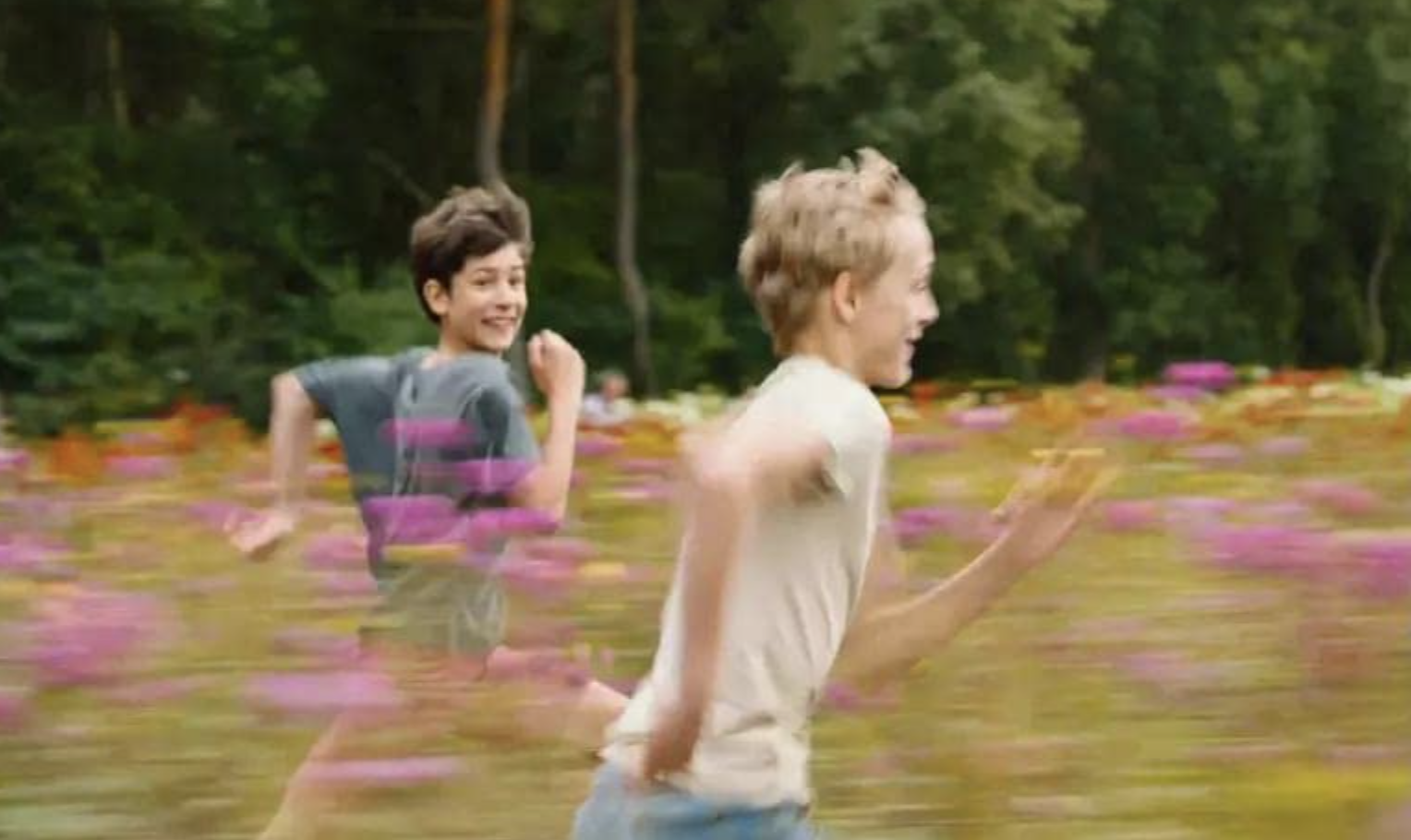Two boys run through the field of dahlias. The camera follows them, trying to catch up to their speed. The boys stay in focus, but the flowers become blurry, making the frame an impressionist painting, reminiscing the transcendental cinematic style of Terrence Malick.
This scene from Close (2022) by Lukas Dhont embodies the incredibly fast pace of physical and mental transformation in adolescence. It also provides the clue that the boys run towards the imminent tragedy that cannot be prevented in a society still imbued with prejudices and gender biases.

Close invites us into the story of thirteen-year-old best friends Léo (Eden Dambrine) and Rémi (Gustav De Waele). At the film’s beginning, the boys are inseparable, playing together all day, telling each other stories, and having regular sleepovers at each other’s houses while sharing the same bed. Everything changes as they attend a new school, and their friendship becomes ridiculed by their classmates and labelled as gay. We would think that with the social awareness of homophobia (and fluidity of gender in general) that the word “gay” lost its derogatory connotations.

Sadly, Close proves us otherwise. We watch the boys struggling to adhere to the accepted model of masculinity: physical strength, lack of emotional expression, unless these emotions are embodied through physical aggression. While Rémi clings to their friendship, Léo abandons it, joining a hockey team and gradually detaching himself from Rémi. In his black hockey uniform, wearing a mask with the birdcage facial protector, Léo seems to barricade himself from anything that could be associated with femininity. What from the outside might seem like an innocent and very natural collapse of childhood friendship, for Rémi becomes an insurmountable tragedy that results in him taking his own life.

The second half of Close is devoted to Léo working through trauma and grief that he will have to carry forever. When he breaks his wrist during hockey training, his hand is placed into a cast to recover. Although at the end of the film, the cast is removed, indicating that not only the wrist but also the grief is healed, the trauma caused by the death of Rémi cannot be alleviated so quickly, and definitely not without input from a therapist. Moreover, our society needs to urgently heal from the scars caused by the patriarchy that paints femininity as weak and derogatory.
Despite the serious subjects the film explores, such as teenage depression and suicide, homophobia, and grief, Close is an astoundingly soft film. The cinematographer, Frank van den Eeden, builds it almost entirely on close-ups and shallow depth, allowing us to focus on subtle but meaningful expressions painted on the faces of actors.

Close impacted me deeply, forcing me into memories of my eleven-year-old self. I was a sensitive, emotional girl who often cried and, thus, I was also ridiculed by my classmates. I also felt suicidal after my best friend abandoned me for someone more popular. I remember mentioning to my parents, who laughed it off: a child cannot be depressed and definitely cannot consider suicide. I fell into a black hole resulting in psychological problems I still struggle with today.

Feminism, understandably, places its focus on the fight for equality, recognition, visibility and fair representation of women in social hierarchies. In this combat, however, it often forgets that its attention should be aimed instead on allowing femininity to flourish, regardless of the gender we choose to identify with.

